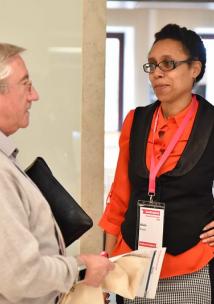First Do No Harm

Background of the review
The Review was announced in February 2018 by the Secretary of State for Health and Social Care, the Rt Hon Jeremy Hunt MP, in the House of Commons. He stated that it would examine how the healthcare system has responded to concerns raised by patients and families about three medical interventions:
- the hormone pregnancy test Primodos
- the anti-epileptic drug sodium valproate
- surgical mesh
The Secretary of State said that the system's response to these concerns was “not good enough”. He announced that the Review, to be chaired by Baroness Julia Cumberlege, would consider a range of matters, including:
- whether any further action is needed relating to the complaints around Primodos, sodium valproate and surgical mesh
- the processes followed by the NHS and its regulators when patients report a problem
- how to make sure communication between the different groups involved is good
Findings from the report
The findings were published last week in the report Do No Harm – a full copy of this report can be downloaded at the end of this article.
Although our focus was on England, we travelled to the four corners of the UK to listen and learn. We met with hundreds of affected patients and their families and heard by email, phone and letter from many more. It became all too clear that those who have been affected have been dismissed, overlooked, and ignored for far too long. The issue here is not one of a single or a few rogue medical practitioners, or differences in regional practice. It is system-wide.
First Do No Harm report: Page 3 paragraph 1.10
There were many common themes across the responses they received from the public. These included
- The lack of information to make informed choices
- Lack of awareness of who to complain to and how to report adverse events;
- Not being believed;
- Dismissive and unhelpful attitudes on the part of some clinicians;
- Life-changing consequences, not only for those directly affected, but for their families and friends too;
- Clinicians untutored in the skills they need to make a proper diagnosis;
- Clinicians not knowing how to learn from patients;
- Inaccurate or altered patient records;
Recommendations
The report have issued a series of recommendations following their investigation. The first of which is compelling
Recommendation 1: The Government should immediately issue a fulsome apology on behalf of the healthcare system to the families affected by Primodos, sodium valproate and pelvic mesh.
The Other recommendations include
- The appointment of a Patient Safety Commissioner who would be an independent public leader with a statutory responsibility.
- A new independent Redress Agency for those harmed by medicines and medical devices should be created based on models operating effectively in other countries.
- Separate schemes should be set up for each intervention – HPTs, valproate and pelvic mesh – to meet the cost of providing additional care and support to those who have experienced avoidable harm and are eligible to claim.
- Networks of specialist centres should be set up to provide comprehensive treatment, care and advice for those affected.
- The MHRA needs substantial revision, particularly in relation to adverse event reporting and medical device regulation. It needs to ensure that it engages more with patients and their outcomes. It needs to raise awareness of its public protection roles and to ensure that patients have an integral role in its work.
- A central patient-identifiable database should be created by collecting key details of the implantation of all devices at the time of the operation.
- Transparency of payments made to clinicians needs to improve. The register of the General Medical Council (GMC) should be expanded to include a list of financial and non-pecuniary interests for all doctors, as well as doctors’ particular clinical interests and their recognised and accredited specialisms.
- The Government should immediately set up a task force to implement this Review’s recommendations.
